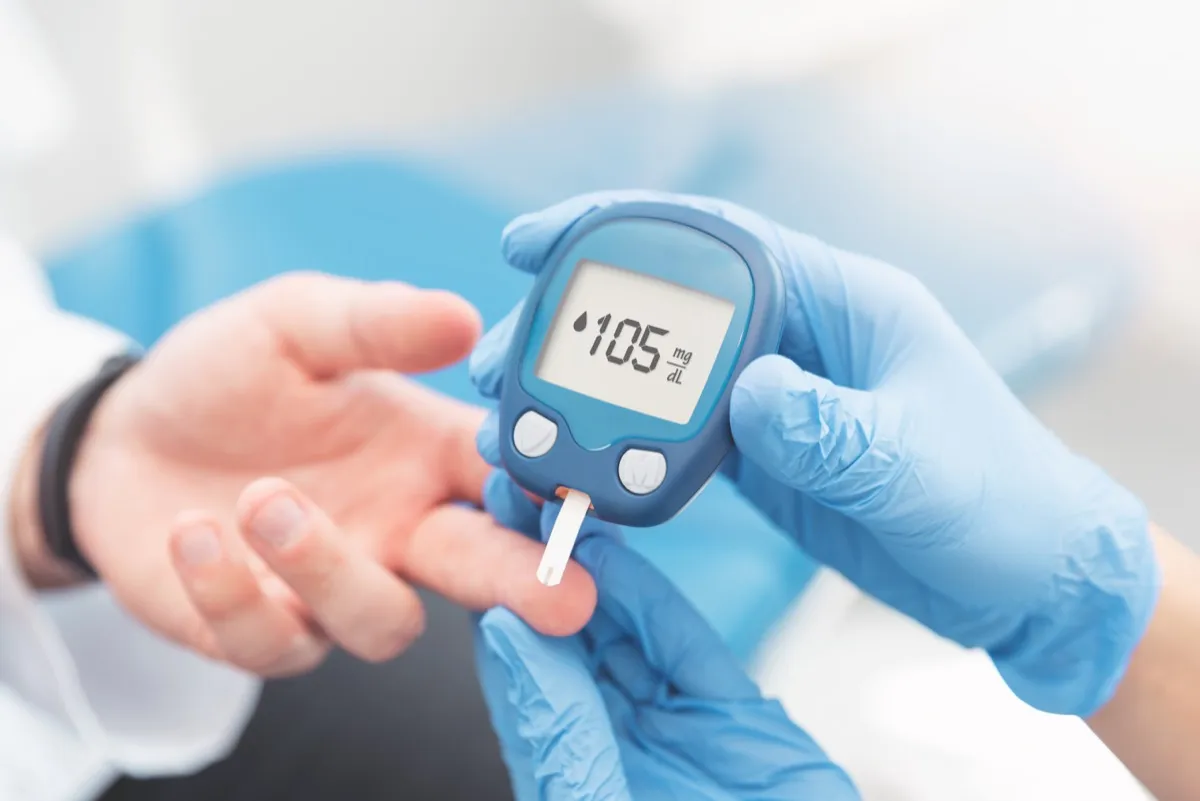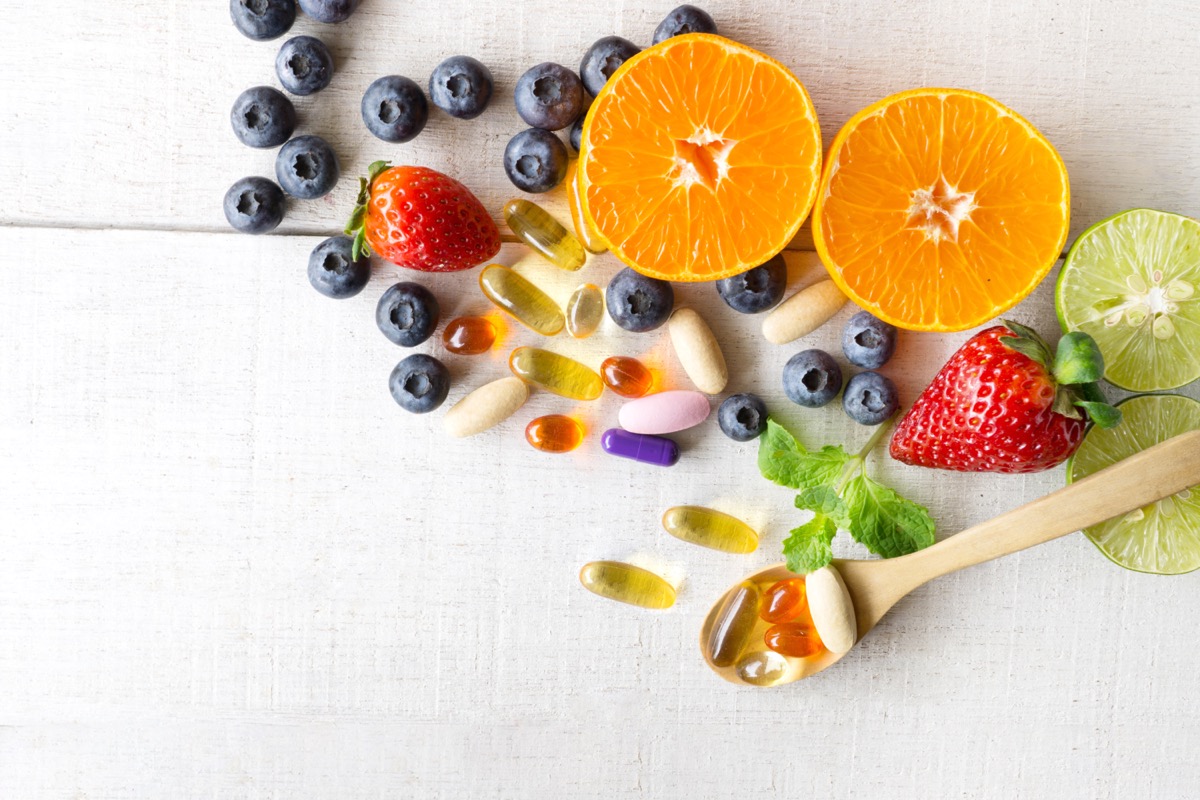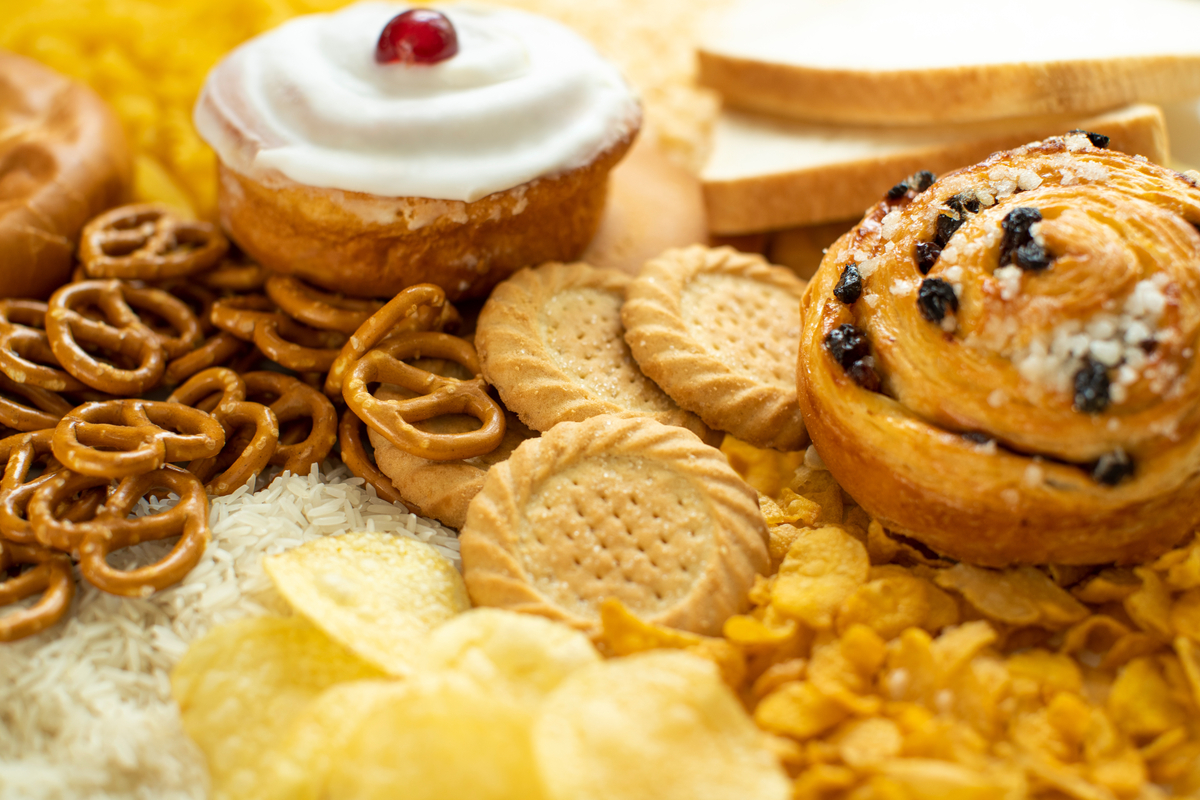7 Ways Your Diet Affects Your Mood and Emotions, According to a Doctor

You might not think that the foods you’re eating can make a difference in the mood and emotions you’re feeling, but the truth is, the two go hand-in-hand.
“I’ve been telling my patients for years that food is medicine,” says Dr. Tomi Mitchell, a Board-Certified Family Physician with Holistic Wellness Strategies.
Yes, good nutrition can help prevent chronic illnesses such as type 2 diabetes, obesity, and heart disease, but eating foods with high nutritional value can also boost your happiness. What’s more, having an unhealthy diet can fuel some less-than-awesome mood swings. Here are several ways your diet can affect your mood and emotions—and which foods you should be eating—so you can get a better handle on your overall well-being.
RELATED: 5 Foods That Will Reverse Low Energy, Doctors Say.
1. Your Blood Sugar Level Can Affect Your Mood

Monitoring your blood sugar level is important for heart health and controlling diabetes; it’s also vital for your mood. “Consuming high-sugar foods or simple carbohydrates can cause rapid spikes and drops in blood sugar levels, leading to mood swings, irritability, and fatigue,” Dr. Mitchell explains.
Instead of turning to ultra-processed and high-sugar foods, Dr. Mitchell recommends opting for “complex carbohydrates like whole grains, vegetables, and legumes, which provide a steady release of energy.” Pair these with quality proteins, like lean chicken or eggs, for a complete meal.
2. Nutrient Deficiencies Can Make You Feel Blah

Dr. Mitchell explained that not eating the right foods can lead to vitamin deficiencies, which have many side effects, including moodiness.
“Deficiencies in essential nutrients such as omega-3 fatty acids, vitamin D, magnesium, and B vitamins (especially B6, B12, and folate) are linked to an increased risk of depression and anxiety.”
Eating a rainbow of colors to get the proper nutrition can help avoid deficiencies, Dr. Mitchell says. “Include a variety of nutrient-rich foods in your diet, such as fatty fish, leafy greens, nuts, seeds, and fortified foods.”
3. Your Gut Health Is Connected to Your Emotional State

Gut health plays a pivotal role in your overall well-being, helping to regulate everything from your immune and nervous systems to digestive function and mental health.
“A healthy gut microbiome can influence the production of neurotransmitters like serotonin, which regulates mood,” explains Dr. Mitchell. “Studies have shown that there are more nerve endings in our stomachs than in our brains, and the stomach is often called the ‘second brain.’”
That’s why neglecting your gut can cause mood swings in addition to other serious health issues.
“Research has demonstrated that imbalances in the gut microbiota, known as dysbiosis, are associated with various mood disorders, including depression and anxiety,” says Dr. Mitchell.
RELATED: 6 Things Your Digestive System Wishes You’d Stop Doing.
4. Hydration Can Help You Feel Better

Drinking water is a popular recommendation within the wellness world because it really can do a world of good. Staying hydrated can regulate your body temperature, prevent infections, lubricate your joints, deliver nutrients to cells, and improve your mood.
According to the Mayo Clinic, women should drink 11.5 cups of water daily, and men should drink 15.5 cups daily.
While that may sound like a lot, Dr. Mitchell says you can stay hydrated with “water-rich foods, such as cucumbers, watermelon, and oranges, which can also contribute to overall hydration levels.”
Otherwise, you’re headed for some nasty emotions, such as fatigue, irritability, and brain fog in the form of decreased concentration and lower cognitive function. This can lead to decreased alertness and increased feelings of anxiety and irritability,” says Dr. Mitchell.
5. Caffeine and Alcohol Can Wreck Your Mood

According to Dr. Mitchell, a cup of coffee or glass of wine can send your emotions on a downward spiral.
“Excessive caffeine intake can lead to anxiety and sleep disturbances, while alcohol can depress the central nervous system and alter mood,” she says.
To combat this, Dr. Mitchell suggests cutting out caffeine and/or alcohol to note any changes or improvements in your mood. Based on this, you can alter your drinking habits in a way that supports your emotional well-being.
6. Inflammatory Diets Can Exacerbate Mood Disorders

Inflammation is part of our body’s defense mechanism to fight off infections, but too much inflammation can lead to major health issues such as heart disease, Type 2 diabetes, kidney disease, and mood disorders.
“Diets high in processed foods, trans fats, and refined sugars have been shown to promote inflammation in the body,” Dr. Mitchell says. “These foods can trigger immune responses that lead to prolonged inflammation, which, in turn, may exacerbate symptoms of mood disorders and increase the risk of developing conditions like depression.”
To help naturally reduce inflammation and improve your mood, Dr. Mitchell recommends following an anti-inflammatory diet that contains fruits, vegetables, whole grains, lean protein, and healthy fats like olive oil and nuts.
RELATED: The 3 “Ultraprocessed” Foods You Must Avoid for a Longer Life, 30-Year Study Finds.
7. Low Amounts of Tryptophan Can Bum You Out

According to Dr. Mitchell, “Tryptophan is an amino acid that helps produce serotonin, a neurotransmitter that stabilizes mood.”
If you have low levels of tryptophan, the resulting absence of serotonin can set you on a road of sadness, depression, anxiety, and the like.
Dr. Mitchell suggests incorporating foods like turkey, chicken, eggs, cheese, nuts, and seeds into your diet to ensure you’re getting enough tryptophan. These healthy options can help make you feel better, healthier, and happier.
- Source: https://www.holisticwellnessstrategies.com/blog-1
- Source: https://www.hopkinsmedicine.org/health/wellness-and-prevention/the-brain-gut-connection#:~:text=Scientists%20call%20this%20little%20brain,tract%20from%20esophagus%20to%20rectum.
- Source: https://www.mayoclinic.org/healthy-lifestyle/nutrition-and-healthy-eating/in-depth/water/art-20044256#:~:text=So%20how%20much%20fluid%20does,fluids%20a%20day%20for%20women